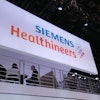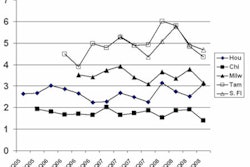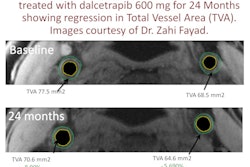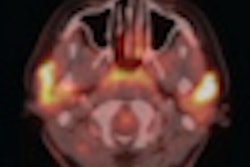Delaware Insurance Commissioner Karen Weldin Stewart has fined Blue Cross/Blue Shield of Delaware (BCBSD) $325,000 in connection with deficiencies in BCBSD's nuclear cardiac imaging testing preauthorization process, Stewart's office announced.
The commissioner also ordered the firm to implement a pilot program with the American College of Cardiology (ACC) that will guarantee that physicians who participate in the program will have their orders for scans automatically approved. If BCBSD does not commit to the new program for a period of at least three years, the firm could be compelled to pay an additional $300,000.
As part of the settlement, BCBSD will underwrite the cost for Delaware cardiologists to access the ACC's Imaging in FOCUS (Formation of Optimal Cardiovascular Utilization Strategies) PIM (Performance Improvement Module) Improvement Tool. The decision-support tool helps physicians evaluate candidates for nuclear stress testing and provides education on nuclear stress testing guidelines.
Flaws in Blue Cross/Blue Shield's nuclear cardiac exam preauthorization process were first explained in a report issued on April 15, following concerns that insurers were not approving or paying for nuclear cardiac stress testing requested by Delaware physicians.
Under terms of a settlement agreement and consent order entered into between Stewart and BCBSD, the insurer will pay the $325,000 fine and will implement the new collaborative program immediately.
"I believe this consent order and settlement agreement is another step in solving the complex problems of delivering the highest quality healthcare to Delaware citizens," Stewart said in a statement. "I will continue to monitor the preauthorization process used by health insurers to ensure that Delaware consumers get the best possible care."
The Access to Medical Imaging Coalition (AMIC) applauded the decision.
"Prior authorization and radiology benefit managers that prevent patients from receiving lifesaving and timely care are of serious concern to us," Tim Trysla, executive director of AMIC, said in a statement. "AMIC has long advocated the adoption of national medical society-developed appropriate use criteria to ensure proper utilization of innovative medical imaging technologies and help physicians make clinically effective decisions about the care their patients receive."




















